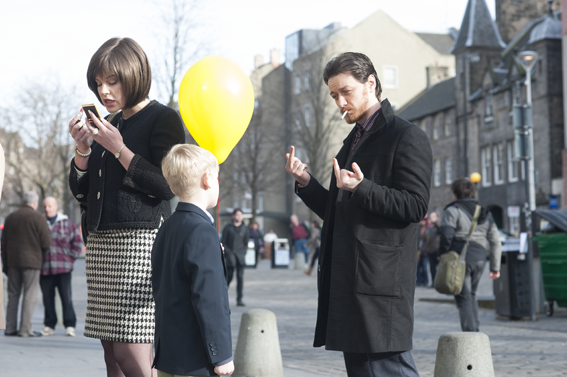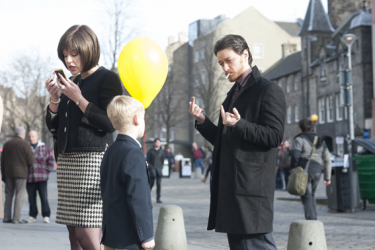Before I saw “Filth” I made both a great and terrible mistake. I read the reviews. “Outrageous!” they called it, “Shocking!” And as a result left the film feeling vaguely underwhelmed. I was promised a film that was be so shocking, I’d be tempted to leave the cinema. In reality, I sat through the entirety of the film with perfect ease. In fact, I can’t remember the last film I enjoyed this much.
I mean sure, your elderly and conservative aunt Betty would be scandalised. “Filth” is, after all, the opposite of what you might call good old clean fun. It is certainly dirty, and it is certainly bold. If a person were to judge it solely on a controversial checklist, it might appear downright revolting.
Does it feature drug abuse? Check.
Sexual content? Check.
… involving minors?! Check.
However that is precisely what the film’s shock factor relies on – a checklist of taboo subjects. And, make no mistake, from coercion to erotic asphyxiation, “Filth” has it all. The trouble is that John S. Baird’s latest film doesn’t really have anything original to say about these subjects. Dysfunctional sexual relationships are ultimately unfulfilling. Drugs are bad for you. Other films have said it before and would go so far as to say that many have said it better.
It is this inability to make a real point, or perhaps, to convey the point of the book that it’s based on that makes “Filth” so thoroughly aggravating. For this well-written, deliciously dark tragicomedy is positively overflowing with the potential to be a truly great film, a potential that it nearly, but never quite manages to realize.
Based on Irvine Welsh’s novel of the same name, “Filth” follows the misadventures of Detective Sergeant Bruce Robertson (James McAvoy), who could best be described as a walking, talking, scheming mentalist on the verge of breakdown, who spends his days abusing his power, snorting cocaine, fucking (figuratively) with his co-workers and (literally) with their respective wives.
Bruce, in a nutshell, is a manipulative and self-absorbed, racist, sexist, homophobic. Not only does he behave like a thoroughly reprehensible human being, he acts in ways so outlandish you’d think it would be hard to accept him as a believable character. And yet, Robertson doesn’t merely come across as real, but as sympathetic. This isn’t because viewers know of his pain (after all, how many anti-heroes haven’t had traumatised childhoods and/or lost their one true love?) but because you see it. There is raw, real, relatable human suffering in Bruce’s every gesture, every intonation – so explicit you simultaneously want to stare and look away. “Filth” is McAvoy’s film through and through, and thankfully the director knows it. Everything, from the art-direction to the Mise-en-Scene is designed not to overshadow, but to complement his virtuoso performance. The film has a marvelous grasp of comedy, however seems less sure-footed when it comes to tragedy. A few sequences, unhelpfully underlined by a simpering soundtrack, come dangerously close to shmaltz. The reason they never do is because McAvoy manages to take the sappiest lamentations (‘I used to be good at this job… I used to be a good person’) and make them genuine enough to rescue Baird from sliding into melodrama.
Bruce’s sanity unravels further and further as the film progresses. His egotism, it emerges, is
coupled with intense self-loathing. At his most vicious, he stands felled by crippling guilt. Like the film itself, the protagonist is depraved only outwardly, but not at heart. Both salvation and self-destruction lie decidedly within his reach. Which one he finally chooses is determined, to great effect, in the very last second of the film.
“Filth” is a thoroughly enjoyable, bright, witty and well-written film. But not even McAvoy can save it from its only fatal flaw; for a film that doesn’t have anything new to say, it markets itself as far more brazen than it really is. Sure, it is highly explicit, yet thematically there isn’t really anything unnerving about it, nothing remotely groundbreaking. Bold it may be, but it should have been audacious. Dirty, yes. But it isn’t quite dirty enough to be filthy.
—Lisa Feklistova


